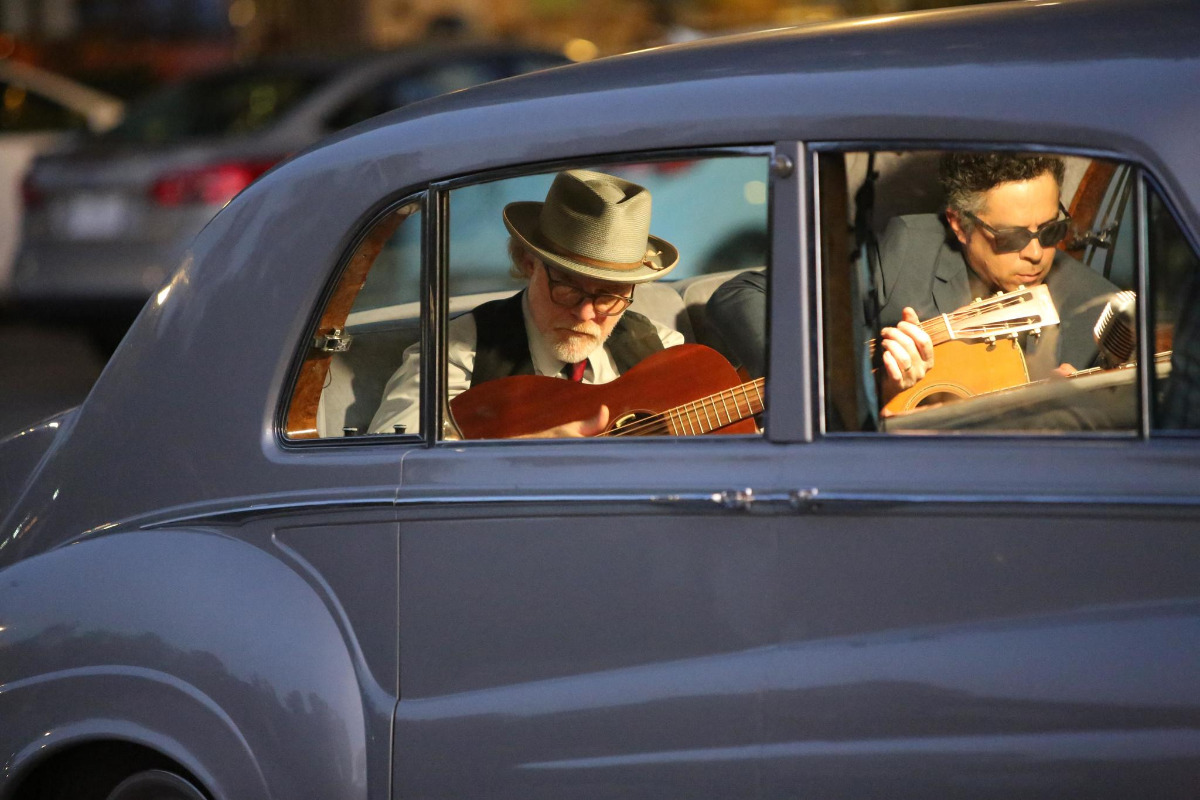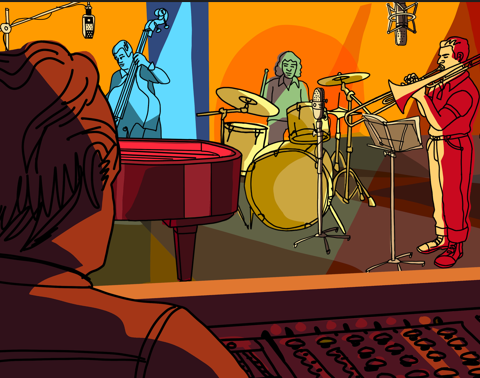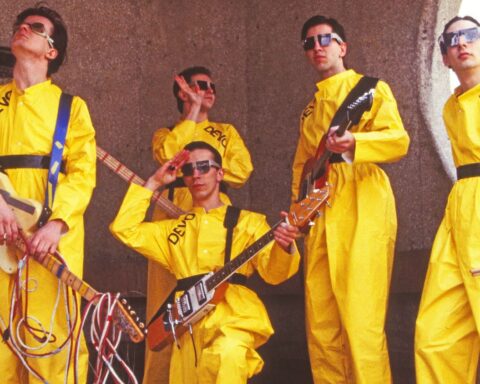The King
(USA, 107 min.)
Dir. Eugene Jarecki
Is there a better metaphor for the United States of America than the career trajectory of Elvis Presley? Eugene Jarecki makes a bold claim that the life of the King is inextricably linked with the American ethos. For him, charting the rise and fall of Presley’s tumultuous career offers the perfect analogy for how much the U.S. empire of the West missed the mark in its quest for greatness. The King shows that, like Elvis, the States exploded with electrifying promise after the Second World War with the advent of rock ‘n’ roll and television, and then let itself loose with a little swagger before its obsession with war and power allowed the promise of a great empire to crumble on self-driven hedonism, excess, and consumption. The nation grew fatter and fatter as it reached the age of Donald Trump’s America. The USA is now a bloated has-been, undone by one fried peanut butter and banana sandwich too many, wheezing its dying breath on the toilet.
This choice to situate a conversation about the King within the climate of America looming under the threat of Donald Trump could have backfired spectacularly. The film, shot primarily in the final legs of the 2016 presidential election, features a tangible sense of unrest in the USA, but also a vital concern to take stock of the nation as it reached a fork in the road. Jarecki takes a novel approach to the music doc as he blends it with one of the most quintessentially American genres—the road movie—by taking a spin in Elvis Presley’s Rolls Royce and inviting fellow Americans to join him on a ride.
An elaborate set-up of cameras and mics captures every angle of this intimate cruise through America’s heartland. Jarecki gives a ride to everyone from musicians like Emmylou Harris to actors like Ethan Hawke to TV auteurs like David Simon and working class Americans—real salt of the earth people, who sing in the back seat or reflect on the legacy of The King. Each leg of the journey sees a casual and open conversation about Elvis and the state of America today.
While the tone of unease is palpable, most interviewees feel confident in a Clinton victory and suggest that the country has enough common sense to avoid a self-appointed king like Trump. Alec Baldwin, for example, rants about selfies and Donald Trump, but rolls down his window to play unofficial pollster on the streets of Manhattan. Nary a Manhattanite roots for Trump and Baldwin dismisses the likelihood of a Trump presidency. This sense of false confidence underlies many of the interviews in The King as some Americans remain at odds with the climate of their own country. Everyday Americans get equal chances to speak with some parroting the soundbite about wanting to make America great again, while destitute members of the working class voice the hardships the Trump campaign harnessed for its victory. Perhaps sensing the chill in the air better than most political pundits, Jarecki creates the first truly great documentary about Trump’s America using contemporary footage with citizens from all walks of life.
It seems there was a little bit of Elvis for every bit of America in the years following World War II. Walking side by side like parallel footprints, The King sees the nation’s fascination with celebrity as one facet of its self-directed bastardization. Music fans eager to learn about the King’s career will certainly find an all-encompassing study of Presley’s meteoric rise to fame in The King, yet the intimate connection Jarecki draws between the journey of The King and the nation’s struggle to realize the American dream yields the richness of this documentary.
The King considers Elvis’s breakthrough in the era of segregation when radio stations, music halls, and public transit featured an explicit divide between white and Black Americans. Expert talking heads situate Elvis’s sex-soaked appeal within the context of whitewashing and cultural appropriation as he lifted sounds, intonations, and songs from the African American tradition, and repackaged them with enough mainstream (re: “white”) appeal to break through when black singers could not. The well-worn example of the difference between his cover of “Hound Dog” and the original by Big Mama Thornton serves as the first example of the myth of an American dream where some citizens can pursue wealth and security, while others are excluded from finding success with the same tools.
Similarly, the chapter on Presley’s well-publicized stint in the army positions the King’s explosion in popularity with America’s reconfiguration of itself as a monolithic war machine. Interviewees and archival images which liken the King to the full-blooded realization of G.I. Joe is a flat-out lie. Then came the temptations of Hollywood and Presley’s decision to sell out his musical talents for a career making lousy movies, and Jarecki intercuts this section with the USA’s turn into Reaganism and the unbridled pursuit of capitalism. As Ethan Hawke intuitively notes while reflecting on Presley’s career, every time the King faced a decision, he chose money. Money over talent, money over happiness, money over freedom. What’s fascinating about The King is the interchangeability of “Elvis” and “America” in nearly every line of dialogue.
David Simon, however, notes that Jarecki’s conceit for the film is problematic since he drives Elvis’s Rolls Royce, rather than a truly “American” car like a big fat gas-guzzling Cadillac. The European-ness of the Rolls Royce, on the other hand, puts Trump along for the ride as Jarecki and his travellers consider a nation in search of a king. Many interviewees observe that, unlike Britain, the USA is an empire without royalty. The film posits Trump as the inevitable man to be crowned king —or, more aptly, to crown himself king—as the nation reaches the apex of its capitalist rule.
The motif of the road movie serves the film well, too, as the journey isn’t complete. There is far more road left to cover. Jarecki and his passengers take a deep look at the nation as they drive through its cities and towns. The atmosphere is tense as is the awareness of false idolatry. There is a sense of a collective reappraisal as the passengers look beyond the fool’s gold of the king’s crown. With The King, Jarecki delivers a brilliantly original music doc that deconstructs the decline of the America empire through one of its greatest icons.
The King opens Friday, July 13 at Hot Docs Ted Rogers Cinema












